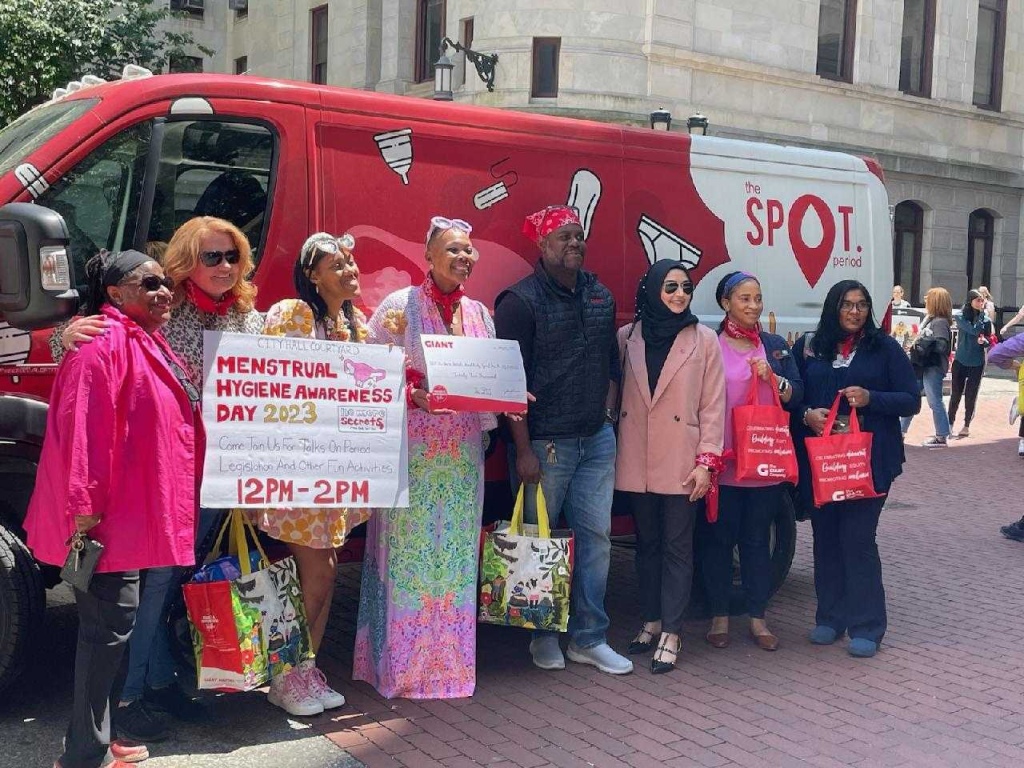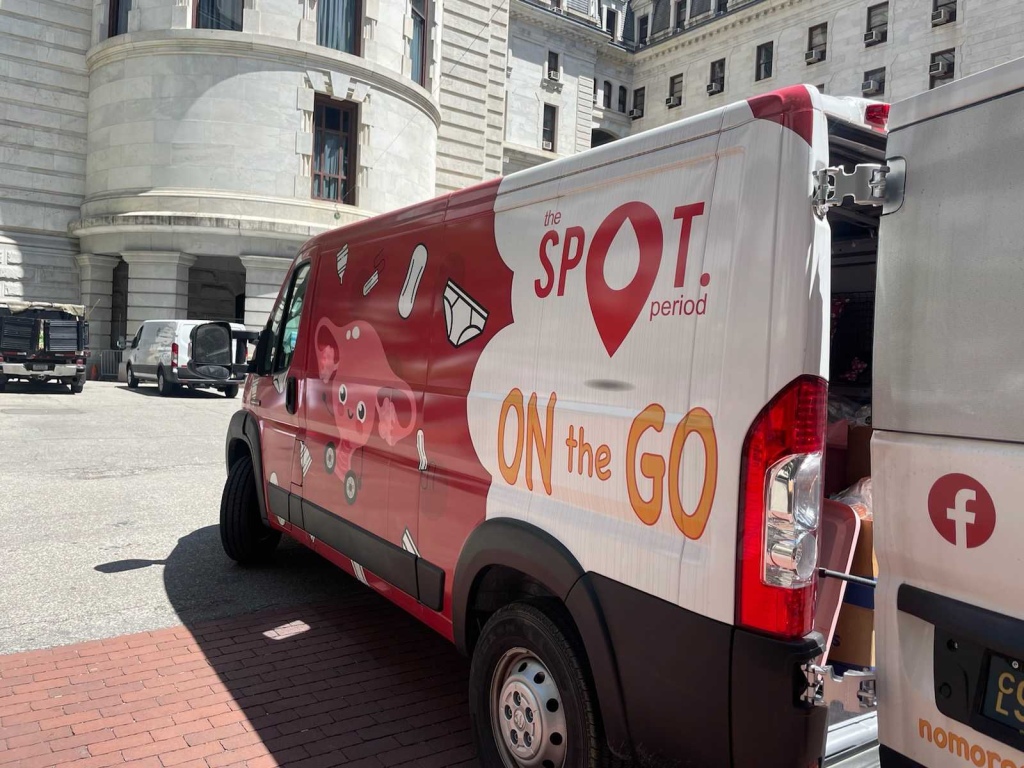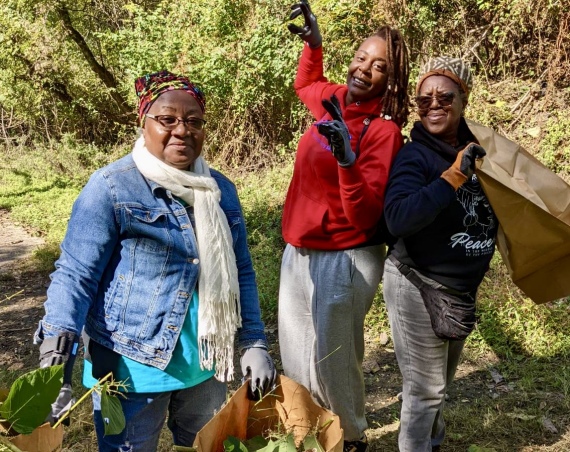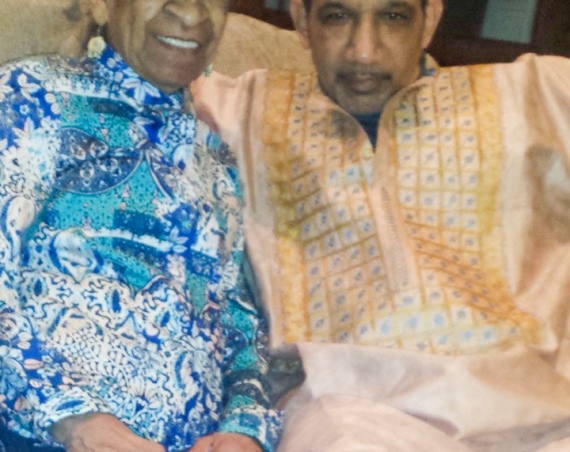The SPOT Menstrual Hub helps women by providing access to free menstrual hygiene products


Photo: Mariyum Rizwan
The world’s first mobile hygiene and uterine health unit was unveiled earlier this summer in Philadelphia, making menstrual hygiene products more accessible for bleeding women in the city.
The unit is part of The Spot Menstrual Hub — the first hub of its kind in the nation. Earlier this summer, the SPOT hosted a menstrual hygiene rally at City Hall to celebrate period awareness day in late May, where the mobile unit made its debut. No More Secrets, an organization that houses the SPOT, was founded by Lynette Medley and her daughter Nya McGlone in response to period poverty, or the inability to easily access menstrual hygiene products and waste management services, in her neighborhood.
“Many of our initiatives and our preventive actions are for things that happen to our bodies after we intersect with something else,” said Medley. “After I get pregnant, after I get a sexually transmitted disease. After I get raped. After, after, after. But what happens to before? What happens to the moment that I’m conceived and I come into this world and I hit puberty and I get my period? How is it that you forget me at that moment?”
Since its opening in 2021, the SPOT has donated over 17 million period products and helped over 4 million people in the city. Tampons and pads are not eligible for SNAP coverage and can’t be bought with EBT cards, despite many women advocating for these basic necessities.
Initially, Medley started the menstrual inequality work by herself. Then when her daughter graduated with her master’s degree from Tuskegee University, McGlone joined her. Medley explained that her background in LGBTQ health gave her the experience necessary to educate communities and to do outreach. Her daughter’s strengths lie in research and analyzing data to best support community needs. Together, they’ve hosted several community days in Germantown with college volunteers for people to come in, make appointments and collect supplies they may need.
They also have satellite locations in Historically Black Colleges (HBCUs) Lincoln University, Delaware State University and Morgan State University. They plan on partnering with even more HBCUs to grow their network in the coming months.
“To create a more equitable environment for all people who menstruate, we must see period poverty as a social determinant of health, and as such, it needs to be incorporated into medical care,” said Shelby Davis, a pediatrician and adolescent medicine physician at the Children’s Hospital of Philadelphia who spoke at the rally in May. “If I lack access to menstrual products, it puts young people at risk for medical problems.”
In healthcare settings where period poverty is prevalent, medical professionals may face challenges in providing appropriate care and support to individuals who cannot afford menstrual products. Limited resources mean that medical professionals may not have an adequate supply of sanitary pads, tampons, or other menstrual hygiene products to distribute to patients in need. This can hinder their ability to address the menstrual health needs of their patients effectively.
Lenore Sears-Gay, a pediatric home care nurse based in Philadelphia, came out to support the period poverty rally because she believes that it is an issue that affects the environment where she works. As a pediatric home care nurse said she had come across children that do not have basic necessities, menstrual products being one of them.
“The parents of these children are struggling themselves to find food, shelter, and in essence, period products are kind of a luxury,” says Sears-Gay. “I usually just buy them myself for the parents.”
People require various menstrual products to manage their menstrual flow effectively. The choice of product depends on personal preference, comfort, and accessibility. Menstrual cups and tampons, for example, require insertion into the vagina and may require more familiarity with one’s body in comparison to pads.
At the May rally, Callitta Smith, shared her story of struggling to afford pads and teaching her disabled daughter how to use them. She said that it can be difficult for young girls with disabilities to constantly change their menstrual hygiene products throughout the day and many reusable products like DivaCups and period panties are too expensive.
“For my oldest daughter, if her period was heavy and we didn’t have the proper pads she did not want to go to school,” says Smith. “For my youngest daughter who is on the spectrum, just teaching her and accruing the costs of products when she didn’t use them properly and we still had to throw them away.”
The lack of access to menstrual hygiene products, adequate facilities, and comprehensive education disproportionately affects people who menstruate, hindering their health, education, and overall well-being.
“Now you have the information that the city is dealing with a health epidemic and a health crisis,” said Medley. “The only organization not funded, is dealing with. Now the onus is on you. Bleeding with dignity, bleeding, with bandanas. My community shouldn’t have to use a bandana instead of a pad or a tampon.”



